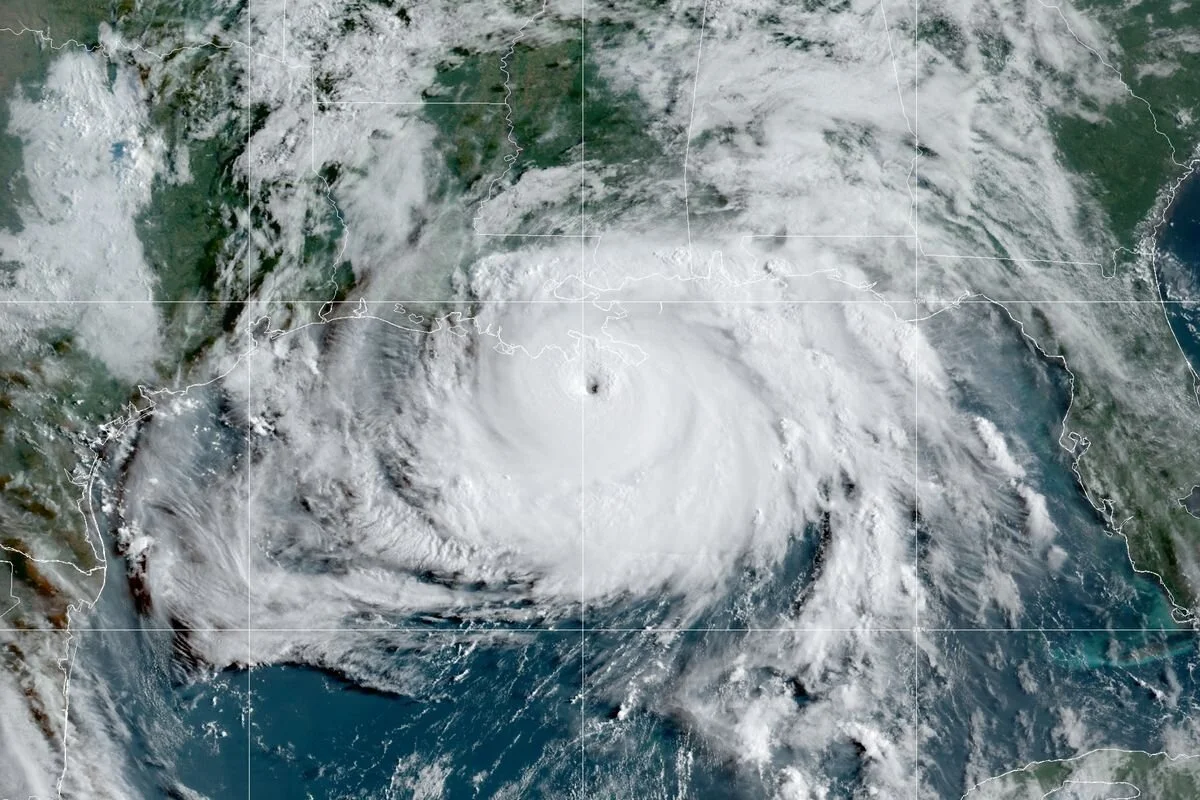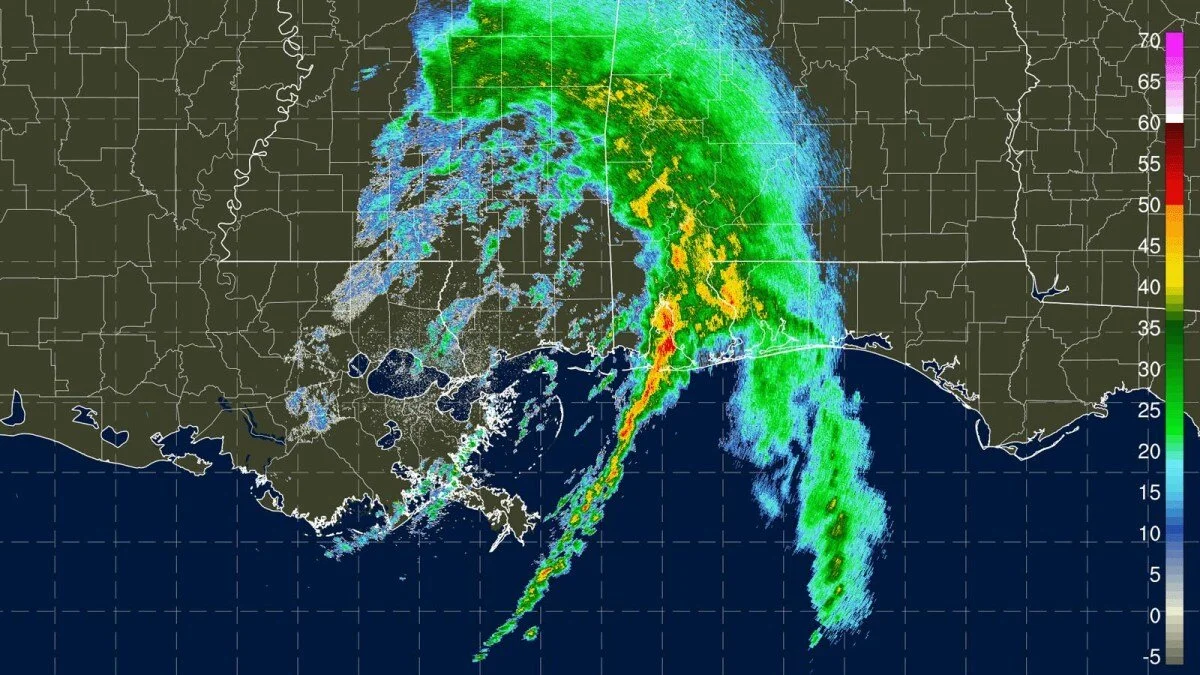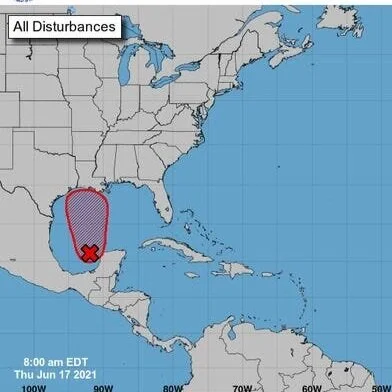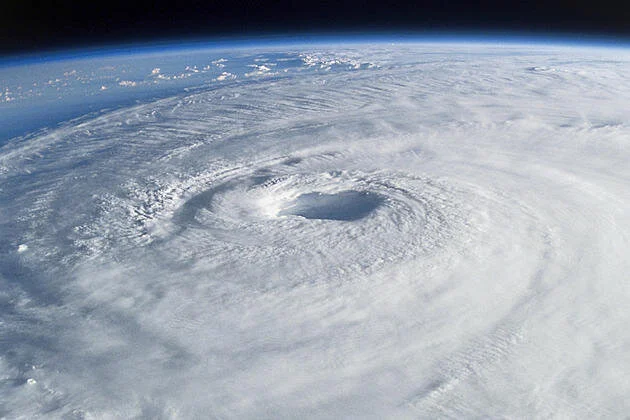The Louisiana Farm Bureau Disaster Response Committee has created a Facebook Group to connect you with other farmers and ranchers across the state to either offer help where you can or request help if you're in need during a natural disaster like Hurricane Ida.
Read MoreThe cotton crop is in really good shape this year across the Delta and Southeast, with its highest rating in five years.
However, Hurricane Ida is threatening to become a major hurricane that could threaten flood and wind damage in that area by Sunday afternoon into Tuesday.
(To see daily updates from DTN meteorologists and follow the track on Ida, go to www.dtn.com/hurricane-ida)
First, a look at the current crop situation in the area that could potentially be hit.
According to the USDA NASS data, the good-to-excellent rating of 71% for the cotton crop is the highest rating in the past five years. All states in the Delta and Southeast have at least a 70% rating except for Tennessee, which is at 67%.
Read MoreHurricane Ida made landfall near Port Fourchon, Louisiana, early Sunday afternoon as an extremely dangerous, Category 4 hurricane with winds of 150 mph, the National Hurricane Center said.
Ida, striking on the 16th anniversary of the historically devastating Hurricane Katrina, tied as the state's most powerful storm ever with Laura from last year and the Last Island Hurricane of 1856.
Landfall is when the eye is halfway over the coast. Extreme winds and surge will accompany the 1 p.m. ET landfall over the next several hours.
Read MoreOne month ago, production of watermelons in southeast Mississippi was on track.
Now, growers there have lost much of their crop to the summer’s wet weather.
Read MoreLouisiana farmers and ranchers now have an online resource to connect with one another in times of need via Facebook, just in time for the peak of hurricane season.
The Louisiana Farm Bureau Disaster Response Facebook Group is where farmers and ranchers can post their needs before, during or after natural disasters.
Read MoreWater is central to our lives. We pray for rain in droughts and talk about “showers of blessings.” But on the other hand, too much rain can be devastating. Farmers in Mississippi, Arkansas and Louisiana are seeing just how destructive all that moisture can be.
About a month ago, a storm system dumped 15-26 inches of rain in these states in just 48 hours. With so much water in a small amount of time coming after an unusually wet spring, water quickly spilled out of riverbanks and filled ditches. It covered fields and washed away crops. It devastated homes and businesses. As communities come together to recover, many farmers and ranchers will try to salvage whatever crops they can, while for some, the season has been completely washed out.
Read MoreThe American Farm Bureau Federation applauds the U.S. Senate for passing the Growing Climate Solutions Act. The act has 55 cosponsors, which makes it the first major piece of bipartisan legislation that would help farmers, ranchers and forest landowners reduce greenhouse gas emissions and build climate resilience through voluntary, market-driven programs. The Growing Climate Solutions Act passed by a vote of 92-8.
Read MoreTropical Storm Claudette dumped heavy rain across coastal areas of Louisiana, Mississippi and Alabama as it chugged inland Saturday, threatening flash floods and possibly tornadoes along its soggy course across the Southeast.
The National Hurricane Center declared Claudette organized enough to qualify as a named storm at 4 a.m. Saturday, well after the storm's center of circulation had come ashore southwest of New Orleans. It was north of the city three hours later, with maximum sustained winds of 45 mph (72 kph) as the storm plodded to the northeast at 12 mph (19 kph). The heaviest rains were far from the center, near the Mississippi-Alabama state line.
Read MoreFood and water? Batteries? Gas?
Sure, these are some things residents in hurricane-prone areas are most likely to buy in preparation for storm season. But in Louisiana, there's one item on the shopping list more than any other hurricane-prone state: booze.
Read MoreA tropical system is threatening the Gulf Coast this weekend, forecast to bring heavy rainfall to parts of Louisiana, Mississippi, Alabama, Georgia and Florida.
The National Hurricane Center started tracking the trough of low pressure on June 11. It could strengthen into a subtropical or tropical depression as early as Thursday night, according to the latest forecast.
Regardless of development, the system will be a heavy rainmaker for the U.S. Gulf Coast, which is the primary concern. Parts of Louisiana could see up to 20 inches of rain over the weekend, AccuWeather senior meteorologist Rob Miller said.
Read MoreHurricane season is here for 2021 and is expected to be an active one. Now is the time to prepare.
“I’m urging everyone to have a plan in place for you, your family, your property and your pets/livestock in the event you are in the path of a storm,” said Commissioner of Agriculture and Forestry Mike Strain.
Louisiana residents should have a plan in place for their property, pets and/or livestock in the event a storm threatens.
Read MoreAlmost three-fourths of the western U.S. is gripped by drought so severe that it’s off the charts of anything recorded in the 20-year history of the U.S. Drought Monitor.
Read More2020 was a record setting year for tropical storms and hurricanes in the Atlantic and the Gulf of Mexico. Thirty storms were named, thirteen of which became hurricanes, and three of those were severe enough to be retired (Laura, Eta and Theta).
Southwest Louisiana crops have been impacted by the recreant heavy rainfall and flooding.
Many crop fields in Calcasieu were submerged in the flood. Though all plants need water to grow, experts said crops in this region do better when it’s hot and dry.
Read MoreHurricane season is right around the corner and the 2021 hurricane season is expected to be an active one. Now is the time to prepare.
“I’m urging everyone to have a plan in place for you, your family, your property and your pets/livestock in the event you are in the path of a storm,” said Commissioner of Agriculture and Forestry Mike Strain, D.V.M.
Read More













